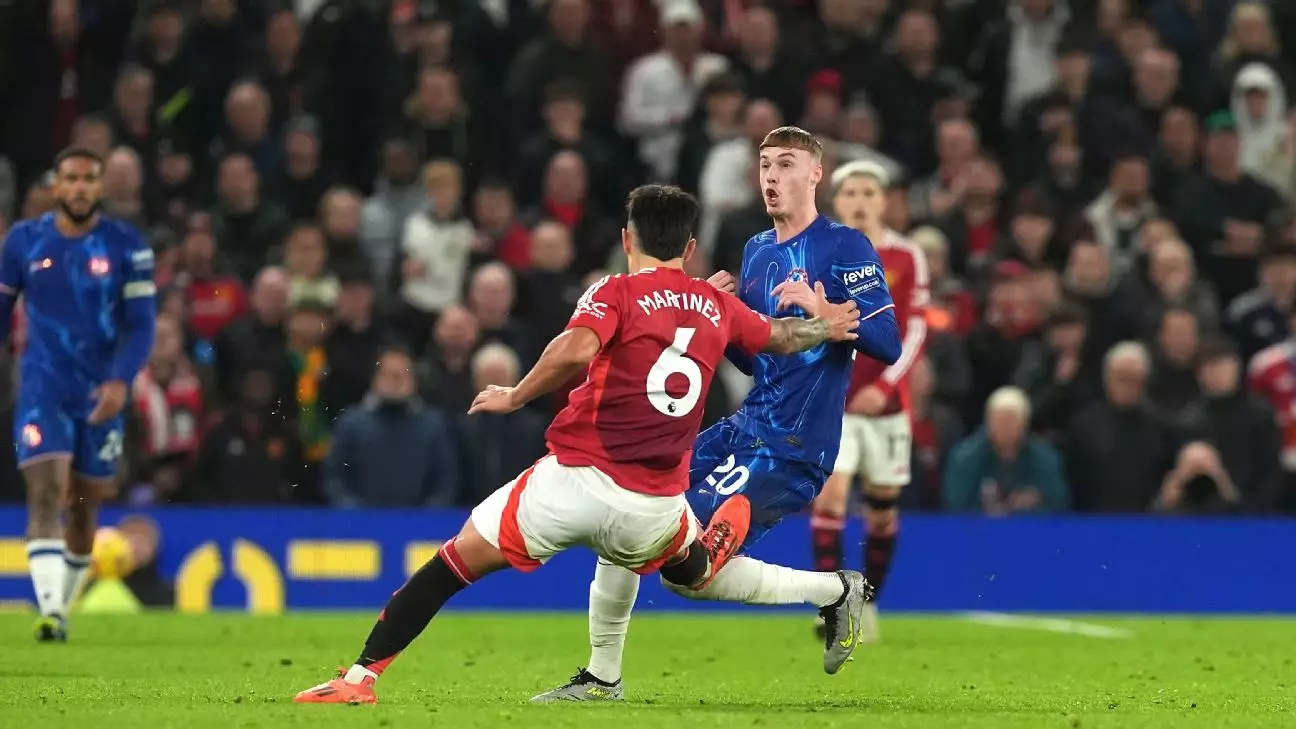In an intense Premier League match this past Sunday, Chelsea and Manchester United played to a tightly contested 1-1 draw at Old Trafford. However, the match was marred by a contentious moment involving Lisandro Martínez, the Argentine defender for United, who incurred the ire of Chelsea’s head coach, Enzo Maresca. The event in question was a reckless challenge on Cole Palmer that led to heated debates about officiating standards in today’s football.
The challenge from Martínez came during a crucial juncture, deep into stoppage time. Referee Robert Jones issued a yellow card for Martínez’s foul, which saw him clip Palmer high on the knee. Critics, including Maresca himself, were quick to argue that this deserved more than a mere yellow. Maresca was adamant that the challenge lacked any intention to play the ball and should have warranted a straight red card. This perspective raises fundamental questions regarding player safety and the criteria governing foul play.
In response to the situation, Premier League guidelines concluded that while Martínez’s tackle was reckless, it did not meet the threshold of serious foul play. This distinction is vital in understanding the inconsistency some fans perceive in officiating decisions. On-field judgment often requires immediate assessment, but in cases like this, it seems that technological aids like VAR have not succeeded in rectifying potentially game-altering decisions.
Among the analysts weighing in on the incident was former Manchester United captain Roy Keane, who did not mince words: “Martinez is a lucky boy. It’s a nasty tackle,” he stated. Keane’s experience lends credence to Maresca’s claims, as former players often have a keen insight into what constitutes a foul in high-stakes situations. Meanwhile, Ruud van Nistelrooy, United’s interim manager, took a more measured stance, mentioning he had yet to review the replay of the incident, signaling an awareness that understanding context is crucial in forming a valid opinion.
This moment has sparked discussions about how the game could benefit from more stringent regulations and clearer definitions of what constitutes reckless behavior on the pitch. If player safety is paramount—as it should be—then clearer guidelines must govern the interpretations referees use in real-time.
What this episode highlights is a broader narrative concerning the effectiveness of officiating in modern football. With the introduction of VAR intended to aid referees, the expectation that such technology will result in more accurate calls has risen significantly. Yet, when such a crucial and visibly dangerous incident passes with only a yellow card, the legitimacy of the system comes into question.
Maresca’s comments reveal the frustration that managers and teams feel regarding consistent officiating. As the season progresses and more fixtures bring challenges tantamount to Martínez’s, one can only hope that the lessons learned from this match will lead to improved clarity and safety in the beautiful game, fostering an atmosphere where players can compete fiercely while minimizing the risk of injury.

